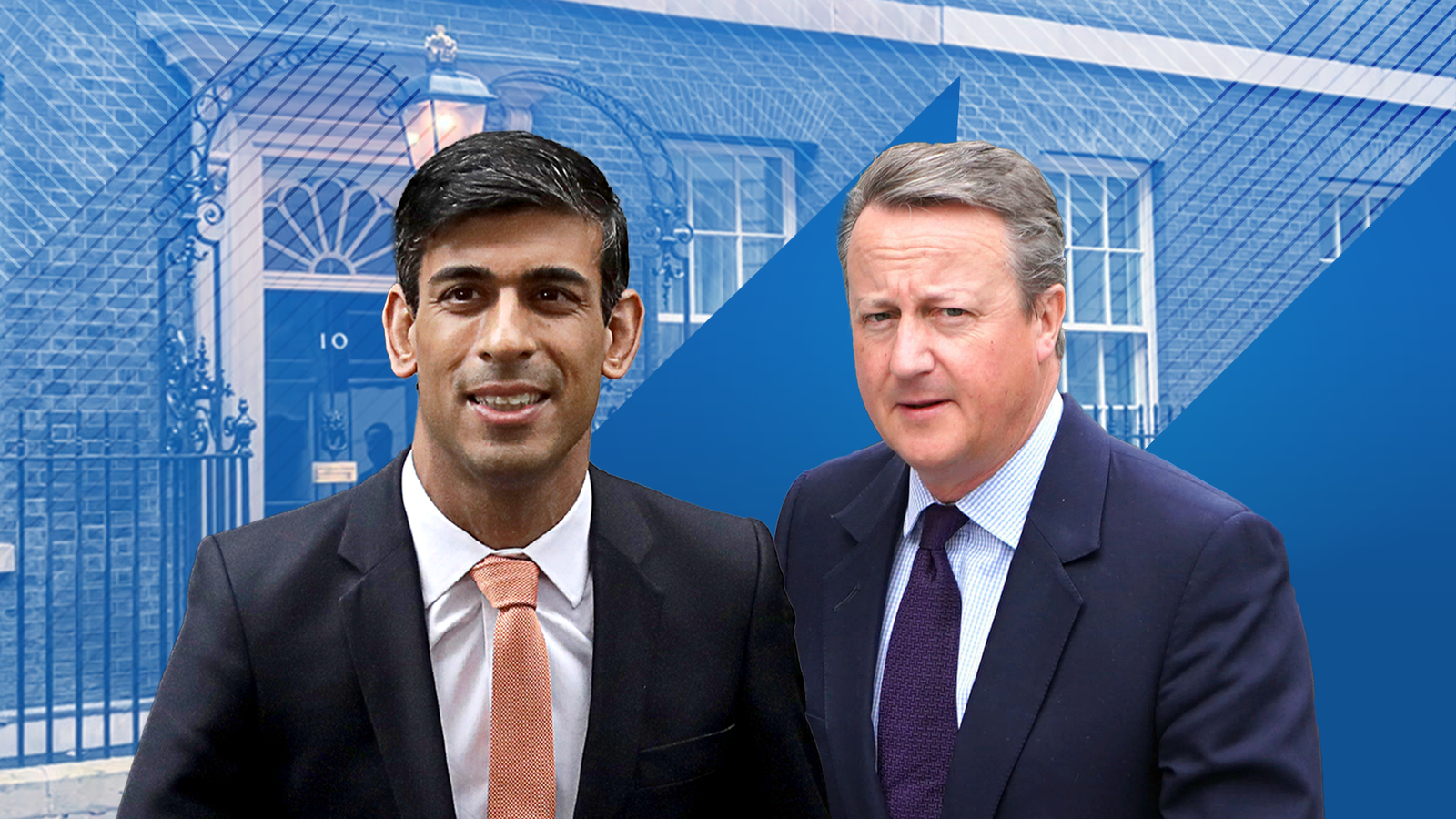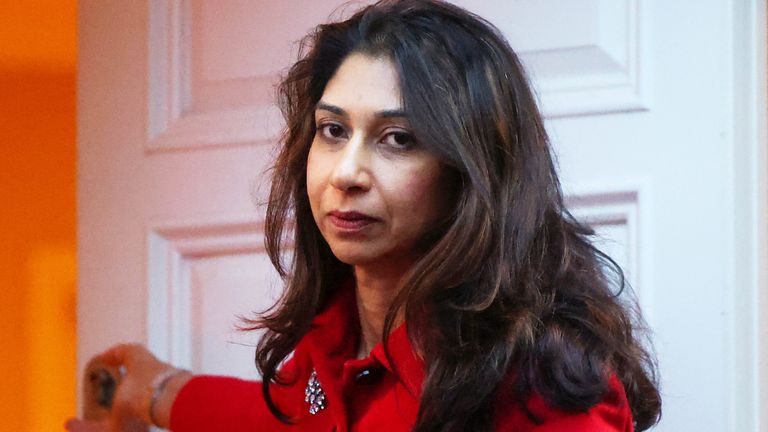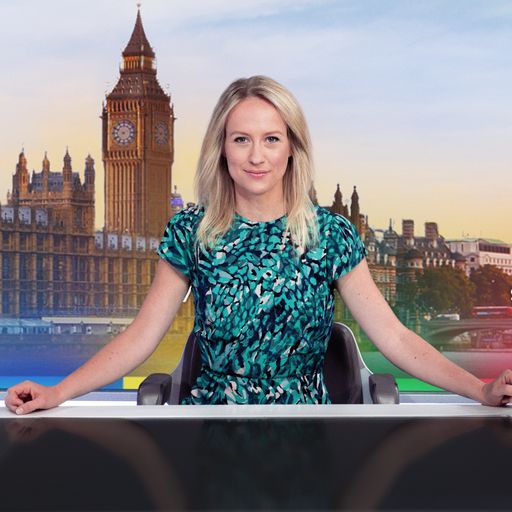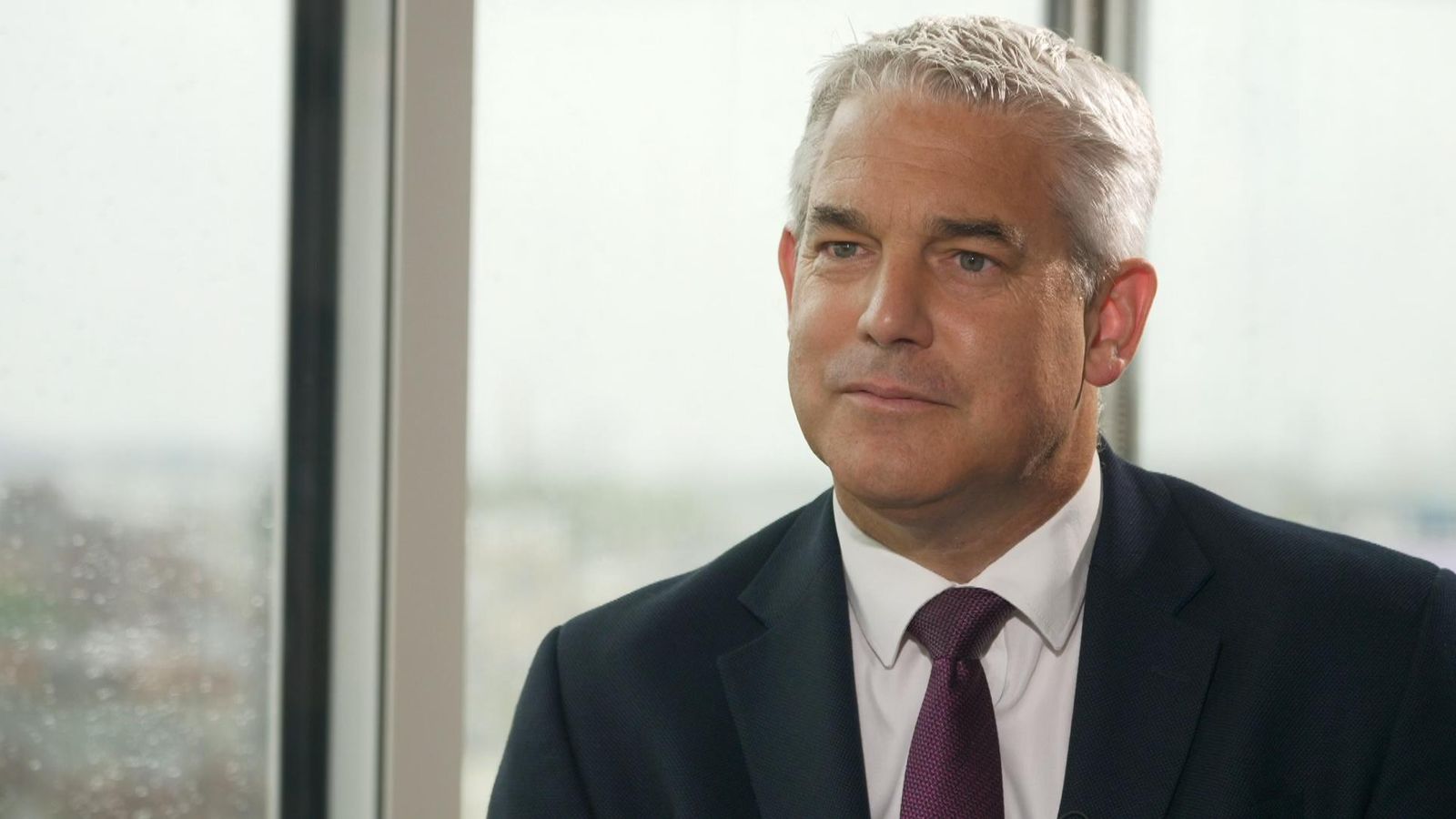Rishi Sunak’s claim to be ‘change candidate’ is tested by return of David Cameron


David Cameron walking up Downing Street to be appointed foreign secretary was the twist no one expected – the character from the end of season one brought back for the finale.
The news eclipsed the departure of Suella Braverman – who pushed the limits of collective responsibility and was blamed by her own colleagues for inflaming protests over the weekend.
So, what does the surprise return of our former prime minister, seven years out of office, tell us about this government?
Follow live for updates and analysis on reshuffle
You can see the argument that Rishi Sunak is bringing back a “big beast” to bolster his administration as it heads towards a difficult election. David Cameron has long experience in government, pulled off a surprise election victory in 2015 and has clout on the world stage at a time of global instability.
But this also looks like a shift in political direction – a swerve away from right-wing populism associated with the former home secretary and towards a traditional centre-right Toryism.
It has certainly cheered the party’s One Nation MPs, the often-sidelined remaining Cameroons who felt out in the cold during the Boris Johnson years. Damian Green, a leading member of this group, called his appointment a move to the “centre-right”.
Other MPs in what could be called “blue wall” seats – those facing a challenge from the Liberal Democrats, and broadly not enamoured with Brexit or the Rwanda policy – also welcomed the appointment. Another former minister told me “the grown-ups are back in charge, Cameron is a class act”.
They added that what the home secretary was doing last week in taking on the Met police was “pure populism”. His appointment is likely to reflect concern about shoring up these blue wall seats.
Advertisement
Analysis:
Cameron’s Greensill connection risks haunting ex-PM’s return to government
But for that reason, it’s a move likely to infuriate the right of his party and its supporters. It could also raise questions about some of Sunak’s own instincts, given the prime minister has promised to “stop the boats”, has socially conservative views on gender, crime and migration, and still hopes to make his Rwanda scheme a reality.
One of Sunak’s supporters described it as a sign of “professionalism” after an all-too-obvious tug of war within the cabinet. Sunak is now not thought to be at risk of a leadership challenge, with an election on the horizon, and can choose the cabinet he wants after a period of having to placate parts of the party who backed him in the leadership contest.

Read more:
It won’t be last we hear of Suella Braverman
Leaked messages reveal the war of words amongst Tory MPs over Braverman
Live poll tracker – how are the parties performing?
But the unelected Cameron comes with baggage. Most obviously, there is Brexit – having campaigned for Remain, he brought about our EU exit with all the messy consequences that dogged his successors. Those tensions have eased within the Conservative Party but have by no means disappeared.
Increasing suspicion of him on the right of the party will be his record on China, and the “golden age” he championed – now seen by many in government as a mistake, as China is regarded as presenting a major geo-political challenge for the UK.

Sky News Monday to Thursday at 7pm.
Watch live on Sky channel 501, Freeview 233, Virgin 602, the Sky News website and app or YouTube.
Theresa Villiers, a Brexiteer who served in David Cameron’s cabinet and is a member of the Intelligence and Security Committee, which recently published a highly critical report on the government’s China policy, told me MPs would have questions for him, saying: “I welcome David Cameron’s return. He is hugely talented and has much to offer government.
“The political landscape has changed dramatically since he resigned and MPs will want the assurance that his approach on issues such as Brexit and China will reflect where we are now, not where we were during the Cameron era in Downing Street. I’m sure he will be able to give that reassurance.”
This reshuffle is likely to be the last significant one before the general election. Previous prime ministers facing difficult electoral tests have brought back big beasts from the past – Gordon Brown with Lord Mandelson in 2008, before going on to lose the 2010 election 18 months later.
Sunak used his recent party conference speech to portray himself as the candidate of change – after 30 years of what he called 30 years of broken politics. He’s now relying on a key figure from the past to try and secure his survival.

